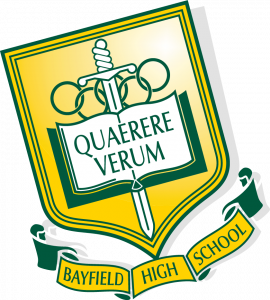
Level 2 Biology
12BIO Course DescriptionTeacher in Charge: Ms K. Hamilton.
Recommended Prior LearningA minimum of 8 Level 1 Science credits, which should include the 4 credits from the external Achievement Standard 90948 (Genetics) and four from Achievement Standard 90925 (Microbiology) and/or Achievement Standard 90930 (practical investigation).
The Year 12 Biology course consists of a mixture of internally and externally assessed NCEA Achievement Standards. During the Level Two course, students will have the opportunity to participate in an experience outside of the classroom where they can gather field data. Students will have the opportunity to sample the marine environment to collect data that forms the basis of a written Ecology report. As part of the Life Processes topic, students will have the opportunity to carry out several dissections during class while earning about gas exchange in different taxonomic organisms. The Microscopes unit of work is a skills-based unit whereby students learn to use a microscope and to create biological drawings and annotations. These opportunities enrich and reinforce the learning occurring at school as well as capturing and engaging students with a passion for Biology.
Students in this course develop and learn new skills around planning and carrying out their own valid scientific investigation. Students will work in small groups to investigate the process of Osmosis and to write up their results in the form of a valid scientific report. The topic on Cell Biology also allows students to develop an understanding of cellular processes such as transport, photosynthesis, respiration and DNA replication. The final topic of the year is a continuation and extension on the Level One Genetic Variation and Change topic whereby students further develop an understanding of inheritance and variation within populations.
Course Overview
Term 1
91158 Ecology
- In class learning about niche, biological relationships, data gathering, adaptations
- Warrington trip
- Report writing
91155 Gas Exchange
- In class learning about diversity in three different animal groups and how they carry out gas exchange to meet the needs of the organism within their own habitat.
- Carrying out dissections
- Report writing
Term 2
91160 Microscopes
- In class learning about parts of a microscope, biological drawings and biological annotations
- Practical use of microscopes
- Biological drawings and annotations
91153 Osmosis investigation
- In class learning about osmosis as a type of passive transport, concentration gradients, scientific method
- Practical learning opportunities
- Carrying out investigation
- Report writing
Term 3
91156 Cell Biology
- In class learning about cell processes such as transport, photosynthesis, respiration, DNA replication, enzymes
- Practical learning opportunities
91157 Genetic Variation and Change
- In class learning about inheritance using dihybrid punnet squares, sources of variation, mutation etc
Term 4
91157 Genetic Variation and Change, continued
- In class learning
Revision and preparation for external NCEA Standards
Assessment Policy & Procedures Pathway Career Pathways
Pathologist, Clinical Physiologist, Physician, General Practitioner, Gynaecologist/Obstetrician, Forestry Scientist, Radiation Oncologist, Acupuncturist, Podiatrist, Occupational Therapist, Osteopath, Physiotherapist, Medical Laboratory Scientist, Forensic Scientist, Zoologist, Zookeeper, Marine Biologist, Microbiologist, Science Technician, Environmental Scientist
Equipment/StationeryOptional workbook scipad L2 Biology bundle (internal and external workbooks) (cost approximately $26). This is highly recommended as it is a valuable resource to supplement classwork.
1 x 2B8 exercise book
1 x 14K8 (graph paper)
Refill pad
Eraser, HB pencil, ruler
Highlighter
Glue stick